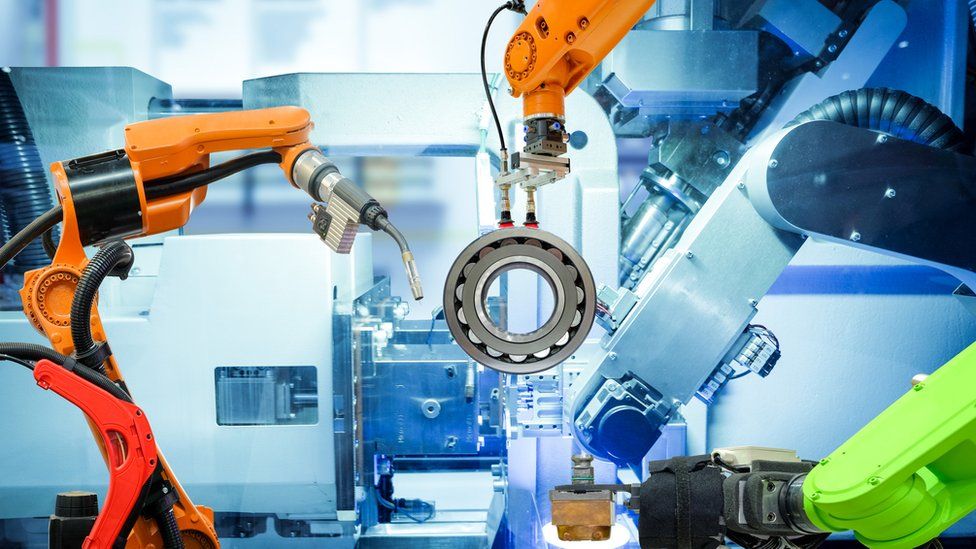Automation 'a threat to 60,000 Northern Ireland jobs'
- Published
- comments

Up to 60,000 jobs in Northern Ireland are at high risk due to the impacts of automation, a new study has suggested.
The work from the Nevin Economic Research Institute (Neri) suggests a further 460,000 jobs face substantial changes as a result of automation.
It anticipates that jobs lost through automation will be replaced by new jobs.
It says the major question is how the new jobs will compare to those that are automated out of existence.
"What jobs are lost, what the newly created jobs are, and how each compares to the other in terms of quality are central to determining the effects of automation technologies," says the study.
Neri says there is a danger that automation will reinforce the trend of "polarisation" in the jobs market - where most new jobs are in either high or low skill occupations, with fewer jobs in "middle skill" occupations like manufacturing.
Neri suggests the sectors most at risk include retailing and hospitality, where more than one in four positions are at high risk of automation.
It says the policy response should focus on "ensuring that workers who face the largest risks of job loss owing to automation have the skills required to transition into new jobs" which are of least equal quality.
The potential impact of automation has become a major talking point in economics.
The wider adoption of technologies like machine learning and robotics is anticipated to bring major changes to labour markets.
The chief economist of the Bank of England, Andy Haldene, has made a series of speeches which touch on automation.
Last year he warned the UK would need a skills revolution to avoid "large swathes" of people becoming "technologically unemployed" as artificial intelligence makes many jobs obsolete.
There have also been a number of reports looking at the potential impacts of automation in Northern Ireland.
The Neri report adopts a cautious approach - its estimate of jobs at risk is lower than some other studies.
Neri also says that all estimates of the risk to jobs tend to reflect what is technologically possible but that other social, legal or regulatory factors will "ultimately determine the extent to which machines substitute for jobs".
- Published10 October 2017
- Published11 September 2015